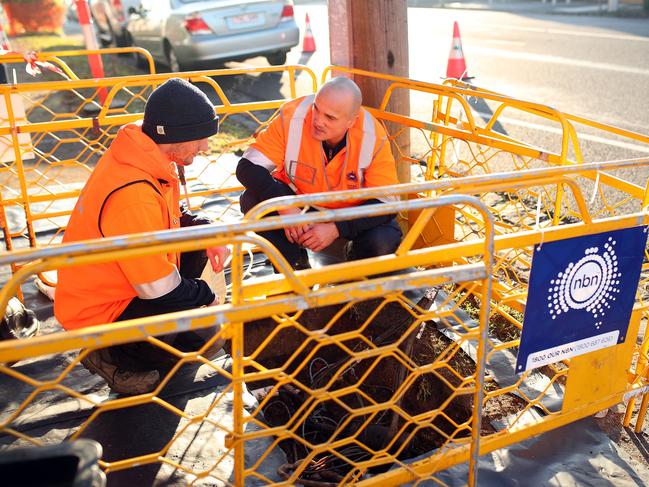Coronavirus Australia: Experts warn of slow internet and big bills as demand from home increases
People working from home due to the coronavirus could face slower internet speeds or larger bills with broadband networks put under strain, and may need to consider upgrading services.
National
Don't miss out on the headlines from National. Followed categories will be added to My News.
- Aldi’s new opening hours as Woolies’ shoppers upset
- Aussie stocks rebound with biggest lift since 1997
People attempting to work from home because of the coronavirus could be left with big internet bills or an inferior service, with Australia’s broadband networks put under unprecedented strain.
The warning by telecommunications experts comes as some broadband services in the United States are grinding to a halt, with users reporting they cannot even download email attachments, much less stream video calls, due to extra demand on the infrastructure.
American content delivery network Akamai reported a worldwide spike in internet traffic of more than 40 per cent on Tuesday compared to an average day, and demand is expected to rise again when hundreds of thousands of US federal employees are asked to work remotely.

Federal Trade Commissioner Jessica Rosenworcel said the US Government needed to develop new ways to urgently deliver better services for households, including students who were struggling to complete classes online.
“The coronavirus is already exposing hard truths about the digital divide,” she said.
“Where data caps are in place, we need to explore how those limitations can be eliminated.
“We also need to understand how broadband providers will keep workers safe and keep their services running.”
Several US internet providers, including AT & T and Comcast, have reduced the cost of services during the crisis, however, including the suspension of data caps and free access to wi-fi hot spots.

NBN Co chief executive Stephen Rue told ABC Radio the network had seen “a small increase in demand” already and peak demand was likely to switch from 9pm to the daylight hours.
Mr Rue also admitted some users would not be able to use their current NBN plans to conduct business and may need to invest in more expensive services.
“It may well be that (broadband users) need more upload speeds on their service at home,” he said.
“What I encourage consumers to do is contact the retailers. Make sure they are on the right plan.
“Clearly we need to work through this as events unfold and work with our retailers.”

Internet providers including Telstra and Optus met with NBN Co and Federal Communications Minister Paul Fletcher this week, and formed a joint industry working group to address the greater demand expected to follow the coronavirus pandemic.
But Mr Rue did not commit to offering discounts during the crisis, as some internet providers have done.
TelSoc vice-president Laurie Patton said Australians connected to the NBN with slower technology may not be able to work from home efficiently, and may have to seek out mobile services to get by.
He said any households connected to the NBN using fibre-to-the-node technology were already unable to download or upload data at high speeds; a problem that would be made worse with congestion on the network.
MORE NEWS
Top docs’ virus fury as hospitals move to help more patients
Third Aussie MP diagnosed with coronavirus
Bali’s famous getaway nears complete lockdown
“The reality is that there’s nothing much (Mr Rue) can do for people stuck with an inferior (copper wire) version,” Mr Patton said.
“Working from home requires the ability to send large amounts of data as well as receive data. (Fibre-to-the-node) is slow going down but impossibly slower going up.”
Independent telecommunications analyst Paul Budde said Australian workers who struggled may simply switch over to the mobile network for internet access as, while it could be more expensive, it was often faster.
“These networks are affected by traffic increase, but I wouldn’t be surprised if they in many cases will keep standing up,” Mr Budde said.

“If indeed the NBN starts faltering in certain areas, people might start relying more on the mobile services and this could indeed trigger what Telstra and the other mobile operators hope: that more people will move to mobile networks and not bother with using the NBN.”
Mr Budde said there would be “lessons to be learned from the crisis,” and it could make the case for NBN upgrades in the near future.
Originally published as Coronavirus Australia: Experts warn of slow internet and big bills as demand from home increases



